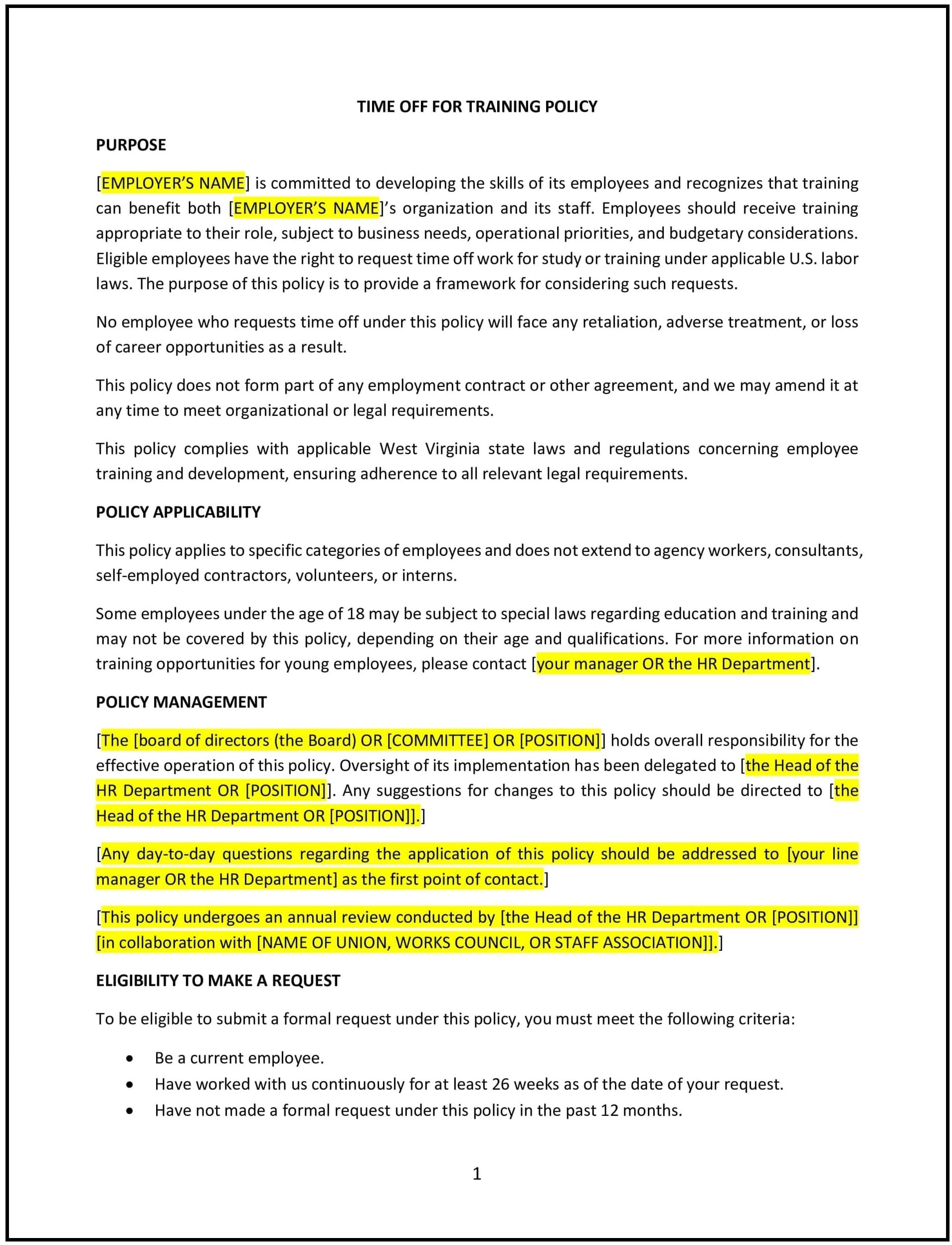Time off for training policy (West Virginia): Free template
Got contracts to review? While you're here for policies, let Cobrief make contract review effortless—start your free review now.

Customize this template for free
Time off for training policy (West Virginia)
In West Virginia, a time off for training policy outlines an organization’s approach to providing employees with time to attend job-related training, workshops, or professional development programs. This policy supports employee growth and aligns with the organization’s goals to enhance workforce skills and productivity. It also ensures fairness and consistency in granting training leave.
The policy defines eligibility, procedures for requesting time off, and guidelines for covering training-related expenses and responsibilities.
How to use this time off for training policy (West Virginia)
- Define training types: Specify the types of training eligible under the policy, such as certifications, workshops, industry conferences, or company-mandated courses.
- Establish eligibility: Outline criteria for employees to qualify for training leave, including tenure, job role, and relevance of the training to their position.
- Provide request procedures: Detail the process for requesting time off, including timelines, required documentation, and approval steps.
- Address expenses: Clarify whether the organization will cover training costs, such as fees, travel, or materials, and specify any conditions for reimbursement.
- Support compliance: Align the policy with West Virginia labor laws and applicable regulations to ensure lawful implementation of training leave.
Benefits of using a time off for training policy (West Virginia)
- Enhances skills: Provides employees with opportunities to develop new skills, improve performance, and advance their careers.
- Boosts productivity: Equips employees with the knowledge and tools needed to excel in their roles and contribute to organizational success.
- Promotes fairness: Ensures equal access to training opportunities for all eligible employees.
- Supports compliance: Aligns with West Virginia labor laws and federal regulations regarding employee training and development.
- Encourages retention: Demonstrates the organization’s investment in employee growth, fostering loyalty and engagement.
Tips for using a time off for training policy (West Virginia)
- Communicate the policy: Share the policy with employees during onboarding and ensure it is easily accessible for future reference.
- Train managers: Provide guidance to supervisors on evaluating training requests and ensuring alignment with organizational goals.
- Encourage professional development: Actively promote training opportunities that align with employees’ roles and career aspirations.
- Monitor effectiveness: Evaluate the impact of training programs on employee performance and adjust offerings as needed.
- Review periodically: Update the policy to reflect changes in West Virginia laws, industry standards, or workplace practices.